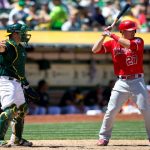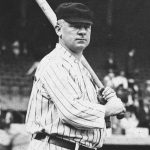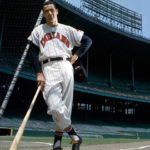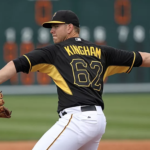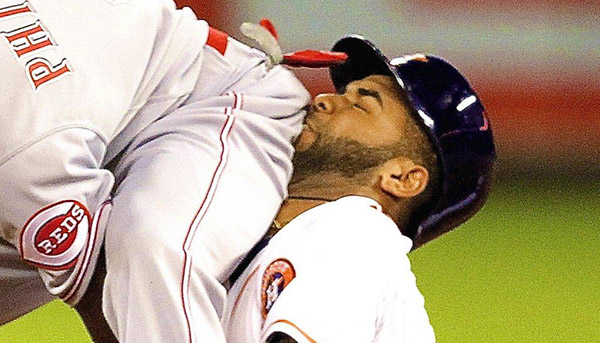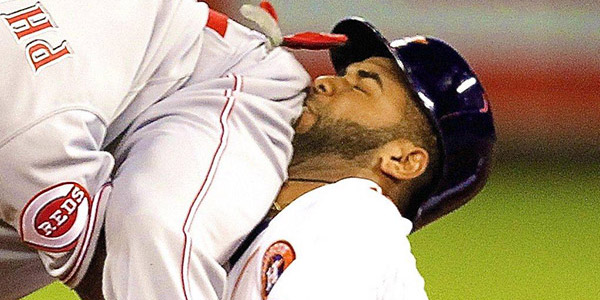Baseball and Thoroughbreds: Trouble Ahead?
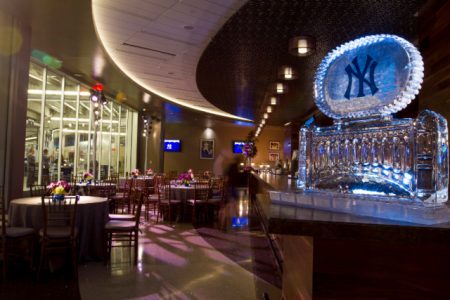 Baseball: sport or business?
Baseball: sport or business?
In a New York Times article on the unnecessary deaths of thoroughbred racehorses at major racetracks around the country, including Santa Anita Park and Churchill Downs, Joe Drape quotes Tim Ritvo, the Chief Operating Officer of the Stronach Group, which owns the Santa Anita Park racetrack: Maybe we are where we are [in the midst of too many thoroughbreds dying unnecessarily] because racing has become too much of a business and not enough of a sport.
What is Baseball Becoming?
That thought has crossed the mind of many commentators who cover major league baseball today. Baseball is no longer the leisurely sport it once was, but a business competing for eyeballs in an entertainment whirlwind that equates baseball with online poker, cable television shows, internet series, streaming services, like Netflix, Hulu, and Amazon Prime, all of which are keen competitors seeking baseball’s ad revenues and fans. Not to mention basketball, hockey and soccer.
Why is baseball in this position?
Well, it has never been a quick-paced sport. Its beauty is wrapped up in its slow, deliberate pace. Its pastoral origins. A strategy that methodically unfolds out by out, inning by inning.
The drama is in the hitter versus pitcher confrontation. The sound of the umpire barking “strike three.” The thud of the ball off the bat.
The cacophony of thousands of voices ruminating over any number of topics in the background as the game proceeds forward. It’s a noisy game, unlike tennis. The sounds of vendors barking “beer” or “hot dogs” or “scorecards” at the top of their lungs have always been a part of the canvas.
The last time I was at Wrigley Field, years ago, the vendors were still selling beer with two outs in the bottom of the ninth. No reason the Cubbies had to lose the game and deprive their fans of a last beer. So, what is baseball: sport or business?
That was Then
Slow and steady. Lots of beer. And hot dogs. At times scintillating, at times boring. Handfuls of salted peanuts. And then more beer. To enjoy the sport.
No game can enthrall every moment, otherwise what would define dull? Less beer? How would we know the game is exciting if it’s not dreary at times? Flat beer. A cold hot dog. A hard pretzel. But that’s the case with every sport.
But it seems baseball’s impresarios want neon lights flashing, brass bands playing and a carnival atmosphere at the game so paying fans can bend their minds to other expensive activities if the game bores them. Business. If they’re here, we might as well separate them from their money.
Where is Baseball Headed?
To keep fans engaged. If not buying beer and food items at their seats, then looking for fun behind the stands in the elaborate theme-concourses that are now designed into every new ballpark. Sport as business.
Adult fun. Sushi. Liquor. Merchandise sales. Steak dinners in luxurious onsite restaurants. Plush bars. No reason to watch the game from the stands.
Once, a long time ago, when Babe Ruth and Walter Johnson and Jimmie Foxx ruled, people came to the ballpark to see a game. To see talented players on grassy fields. Now they come to the ballpark to wander around the stadium, their eyes glued to television monitors and computer screens mounted all around the ballpark as they engage in other activities off the field.
Off the field. Lots of money to be made off the field.
The Yankees’ off-the-field (but inside-the-stadium) entertainment and catering business, Legends Hospitality (valued at more than a billion dollars) brings top-tier service, expertise and culinary excitement to the demanding gourmets at Yankee Stadium who relish more than hot dogs and beer.
Needless to say, just as broadcast dollars are stripped off the baseball club, so are entertainment dollars. Fans may be attending a Yankees game, but the game is now a complex business, and among the elite teams, their baseball clubs have become like zero-coupon bonds.
Teams or Zero-Coupon Bonds?
The interest-bearing coupon of the bond is no longer part of the baseball team. It is systematically stripped off and payable to a holding company that controls all of the subsidiary elements of the sports management business.
And while the bonds, the clubs, are worth more than par and were bought at a discount, because they are throwing off their revenue elsewhere, ownership can claim their bonds’ life money, or earn minimal amounts of capital, enough to generate losses, while the entire holistic enterprise amasses hundreds of millions (if not billions) of dollars of profit.
This is where baseball is headed. To a two-tiered compensation system. To more complex corporate arrangements that siphon off all the revenue the holding group can squeeze out.
So, the Yankees siphon off hundreds of millions of dollars, if not billions of dollars to YES, to Legends Hospitality and their other subsidiary services. Big business.
The Boston Red Sox spun off NESN, which is now 80 percent owned by the Fenway Sports Group (FSG), even though FSG controls the Red Sox. So John Henry, the Chairman of the Red Sox and FSG could tell reporters earlier this year that the Sox have lost money over several seasons since FSG took over the Red Sox in 2001. Because stripped of their revenue sources, the Red Sox may actually lose money periodically, to ownership’s advantage.
The Response?
Speed. Like in making the games faster. Two hours faster. Players racing on and off the field. No more mound visits. Enforced hustle on the field. Pete Rose would not stand out in this game. He’d be one of many chugging on and off the field and around the bases.
The Atlantic League has become MLB’s experimental laboratory as reported in The New York Post.
The proposed changes are shocking.
Imagine the pitching mound moved two feet further away from home plate. Sixty feet six inches could become 62 feet six inches. Damn unnatural.
Umpires may also be endangered. Who needs them anyway? Think of all the money that could be saved. And the hassle of labor relations and unnecessary costs.
Umpires are costs. Period. But necessary costs. Then again, the great umpires with booming voices like Al Barlick, Shag Crawford and Dutch Rennert would quietly disappear. And while umpires are not directly part of the game, each umpire working home plate has his own style, his own strike zone. And that adds to the unique signature of each game.
The Post writes: Tabled, for now, is radar-tracking technology that assists the home-plate umpire in calling balls and strikes. Eventually, blue will wear an earpiece, and TrackMan computer system that uses Doppler radar will advise on balls and strikes.
The question: Is this what fans want? And who says that only Rob Manfred understands what’s good for baseball?
Maybe what baseball needs is more of the non-home run hitters on more teams. Guys who put the ball in play, spray base hits all over the field and earn a reasonable salary. Versatile players who do not strikeout as much. Not lumbering, overpaid home-run hitters who swing for the fences every at-bat, see a lot of pitches and then walk back to the dugout. Think Gary Sanchez, Chris Davis, Bryce Harper and many others.
Maybe, if baseball didn’t reward the wrong kinds of action on the field, the thoroughbreds would be sleeker, faster and less powerful. There would be fewer strikeouts, more ground balls and more action. But baseball is a different kind of business now than it was 50 years ago. And if it’s not careful, it may begin to go the way of thoroughbred horses.
